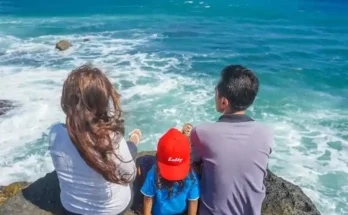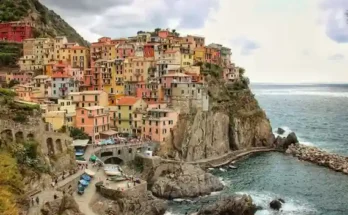There’s something undeniably magical about stepping off a plane, train, or boat into a place you’ve never been before. It’s not just about ticking destinations off a list or snapping the perfect Instagram shot—it’s about movement, discovery, and transformation. Travel is a journey that begins not with a booking confirmation, but with a whisper in the heart that says, “Go.”
In a world constantly in flux, travel reminds us that beauty, wonder, and connection are still out there waiting. But more than ever, travel is evolving—from how we go, to why we go. Welcome to the modern traveler’s world, where experience trumps luxury, authenticity matters more than itineraries, and where every journey is as much inward as it is outward.
The Evolution of Travel:
Travel is nothing new. For as long as humans have existed, they’ve moved—from nomads following the seasons, to merchants navigating the Silk Road, to pilgrims seeking sacred truths. What began as a necessity evolved into a desire. As civilizations developed, so did the reasons to travel: conquest, commerce, curiosity.
The Grand Tour of the 17th century saw European aristocrats journey through France and Italy to learn about art, culture, and history. For them, travel was education. Today, we echo that legacy in our own ways—chasing sunsets in Santorini, meditating in Bali, or tracing ancestral roots in Ireland.
The traveler of today isn’t just looking to see the world—they’re looking to feel it.
Why Do We Travel?
-
The Shift from Places to Experiences
Not long ago, travel was about checking off landmarks—the Eiffel Tower, the Great Wall, the Taj Mahal. But today’s wanderers are less concerned with postcards and more interested in the story behind the places. They want to learn how to cook pasta in a Tuscan village, dance with locals at a Colombian carnival, or hike through hidden valleys in Nepal guided by someone who calls it home.
This shift reflects a broader craving for connection. We don’t just want to escape our lives—we want to enrich them.
-
Travel as Personal Transformation
There’s a quiet moment that often arrives during a journey. It might be on a mountaintop, staring at the ocean, or walking through a crowded bazaar where no one speaks your language. In that moment, something shifts. You become more than a tourist. You become part of the story of that place—and it becomes part of yours.
Travel has the uncanny power to humble us, broaden our perspectives, and challenge our assumptions. It shows us who we are when we’re stripped of routine, surrounded by the unfamiliar.
The Road Less Traveled:
-
Choosing Depth Over Distance
In recent years, a powerful movement has emerged in the travel world—slow travel. It’s about spending more time in fewer places, and really getting to know them. Instead of a whirlwind of ten cities in ten days, slow travelers might spend a month living in one village, learning the rhythms of daily life.
This approach not only enriches the experience but reduces the environmental and cultural footprint of tourism. It’s a conscious decision to travel not as a consumer, but as a guest.
-
The Ethical Traveler’s Mindset
Sustainability isn’t just about carbon offsets or reusable water bottles. It’s about respect—respect for local communities, for nature, for history. It means choosing accommodations run by locals, buying crafts directly from artisans, and leaving destinations better than we found them.
Ethical travel recognizes that we are not the center of the story, but participants in something much larger. When we travel with intention, we transform tourism from an industry into an act of empathy.
Cultural Immersion:
-
Learning Through Lived Experience
One of the most profound aspects of travel is the chance to step into someone else’s world. Not just to see how others live, but to live alongside them. Whether it’s helping with a harvest in a rural vineyard, attending a traditional wedding, or simply sharing a meal cooked over a fire, these experiences linger long after the souvenirs fade.
Such moments teach us about difference and commonality. They remind us that while customs and languages vary, kindness, laughter, and generosity are universal.
-
Language as a Bridge, Not a Barrier
You don’t have to be fluent to connect. A few words, a smile, a shared gesture—they go a long way. Trying the local language, however imperfectly, shows respect. It opens doors and hearts.
In travel, communication is less about grammar and more about openness. It’s about listening as much as speaking, watching as much as wandering.
Technology and Travel:
There’s no denying that smartphones and apps have changed the way we travel. With Google Maps, translation tools, and digital bookings, getting lost is harder than ever. Social media introduces us to hidden gems and helps us connect with fellow travelers across the globe.
In many ways, technology has democratized travel. It’s made it safer, more efficient, and more inclusive. We can plan a weekend getaway from our couch or work remotely from a beach in Thailand.
But there’s a flip side. The obsession with documenting every moment can pull us out of the experience itself. When the focus shifts from feeling to filming, from being present to being followed, travel risks becoming performance. The challenge for the modern traveler is to find balance—to use technology as a tool, not a crutch. Sometimes the best memories aren’t the ones we post, but the ones we carry quietly within us.
Returning Home:
Coming home after a life-changing journey can be disorienting. The world looks the same, but you’ve changed. Friends may ask how your trip was, expecting a quick story or two, not realizing that your entire perspective has shifted.
This feeling—of being in between worlds—is part of the travel experience. It’s a sign that something inside you expanded, and that piece of the world you visited still lives in you.
The end of a trip doesn’t mean the end of discovery. True travelers carry their experiences into everyday life. They approach their own cities with new eyes, continue learning new languages, try foreign recipes, and keep their minds open.
Travel isn’t just a destination—it’s a mindset. And the best journeys often begin right where you are.
Conclusion:
Travel, at its best, is an act of curiosity, courage, and compassion. It’s about more than photos or passport stamps—it’s about transformation. It reminds us that the world is vast, complex, and beautiful beyond words. It invites us to listen more than we speak, to wander more than we plan, and to live fully in the moment.
So, wherever the road calls you next—whether it’s across an ocean or just across town—follow it. Not to escape your life, but to return to it more awake than before.




